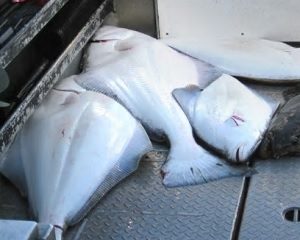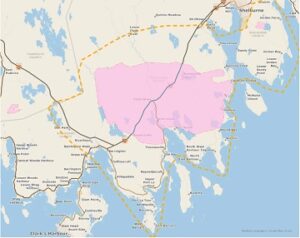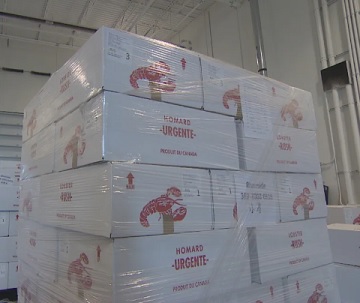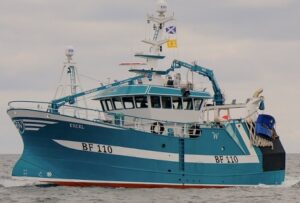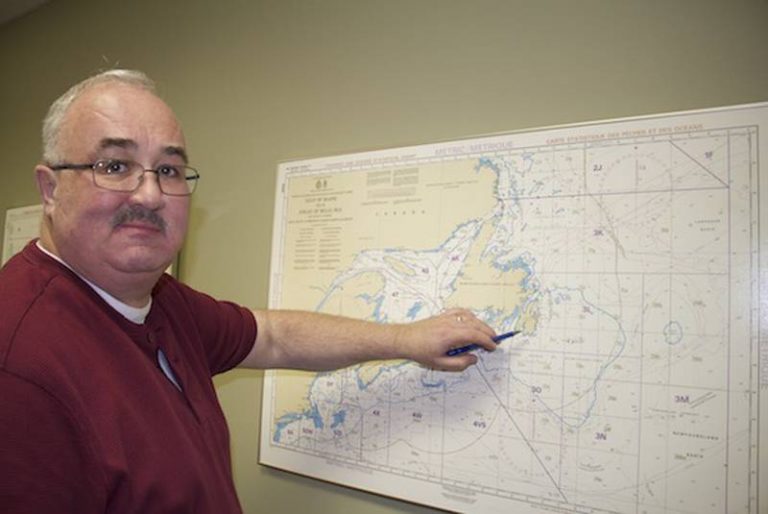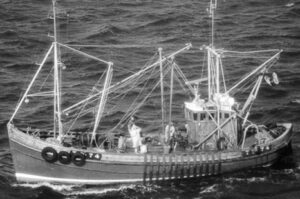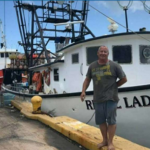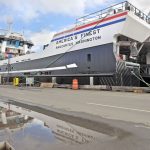Tag Archives: Nova Scotia
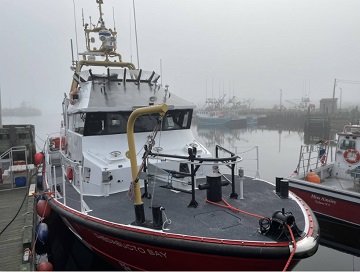
Nova Scotia: New Lifeboat Enters Service for the Canadian Coast Guard
The Canadian Coast Guard on Wednesday welcomed the CCGS Chedabucto Bay into its fleet at the Lifeboat Station in Clarks Harbour, Nova Scotia. The Bay Class vessel, built by Chantier Naval Forillon in Gaspé, Quebec and delivered earlier this year, is the 14th of 20 new search and rescue lifeboats that will be dedicated into service by the Canadian Coast Guard across the country. The shore-stationed self-righting lifeboats are specifically designed, equipped and crewed to respond to search and rescue incidents at sea. These vessels will operate up to 100 nautical miles from shore, maintain a maximum 30 minute state-of-readiness, and are typically ready to respond the moment an alert is received. Eah has a top speed of 25 knots and is manned by a four-person crew. >click to read< 07:43

N.S. fishermen rescued by coast guard land safely in St. John’s
Seven Nova Scotia fishermen say they’re happy to be back on solid ground in St. John’s after their boat took on water and they had to be rescued by the Canadian Coast Guard. John Gilkie, part of the crew of the Addie N Ainslie fishing for halibut out of Sambro, N.S., said the crew noticed a shaft vibration on the boat and decided to call their trip short. While coasting back in search of a tow on Tuesday, Gilkie said they heard a loud bang. “When we checked that, there was water pouring in in two different directions,”>click to read< 16:19
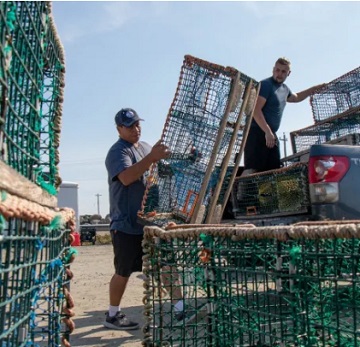
DFO says it has enough resources to monitor Indigenous lobster fishing in Nova Scotia
Fisheries and Oceans Canada (DFO) says its enforcement branch will be on the water and adequately equipped to monitor compliance of First Nations lobster fisheries this summer. The pledge follows the chaotic fishery for baby eels this spring where there was widespread illegal activity by some Indigenous and non-Indigenous harvesters. DFO shut down the legal elver fishery, affecting both commercial licence holders and Indigenous groups with fishing plans approved by the department. But “poaching”, as federal Fisheries Minister Joyce Murray called it, continued. “I want to clarify they are two very different fisheries,” Maritimes region director of conservation and protection Tim Kerr told reporters Monday in a briefing on Indigenous rights-based lobster fisheries. >click to read< 08:35
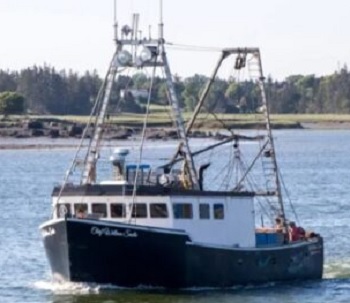
In aftermath of sinking, crew member’s widow says Transport Canada reform falls short
Transport Canada will tighten inspections of fishing vessels in the aftermath of a deadly Nova Scotia sinking in 2020, but the widow of a lost crew member says the reform doesn’t go far enough to prevent future tragedies. Six crew members died on Dec. 15, 2022, when the Chief William Saulis capsized as heavy seas crashed into the rocking boat and 2,700 kilograms of unsecured scallops slid around a deck, blocking drainage. But Michelle Nickerson-Forbes, the widow of Dan Forbes, said in an interview Friday that the federal department is failing to move on what she and other families consider a root cause of repeated fishing tragedies: unstable vessels going out to sea. >click to read< 07:58
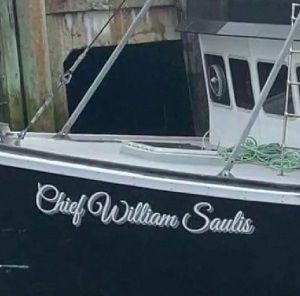
Ottawa accepts call for tighter fishing boat inspections in aftermath of N.S. sinking
Transport Canada says it will tighten inspections of fishing vessels in the aftermath of a 2020 sinking that resulted in six deaths off Nova Scotia’s southwestern coast. A March 22 report by the Transportation Safety Board of Canada concluded that the dragger Chief William Saulis capsized because 2,700 kilograms of unshelled scallops blocked the drainage system as high seas crashed into the boat. It recommended that Transport Canada inspectors verify whether required, written safety procedures are available to crew, such as methods to store catch in a way that doesn’t block drainage. Video, >click to read< 12:53
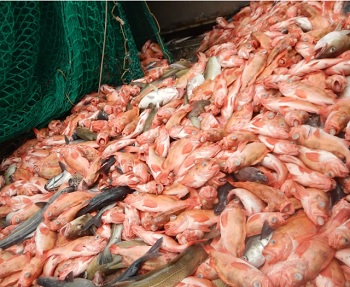
Canada: Positioning for redfish re-opening
Canada’s commercial fishery for redfish in the Gulf of St. Lawrence has remaind closed since 1995 to allow redfish stocks rebuild to healthy levels. Now the authorities are positioning to re-open the Unit 1 redfish commercial fishery in Atlantic Canada and Quebec in the near future. The announcement has been made by Minister of Fisheries Joyce Murray that in preparation for a pending commercial fishery, the 2023 experimental fishery for Unit 1 redfish will be increased from 2500 to 5000 tonnes. Twenty-four individuals and groups from Quebec, New Brunswick, Prince Edward Island, Nova Scotia and Newfoundland and Labrador have been approved to participate, five of which are Indigenous groups. >click to read< 07:48
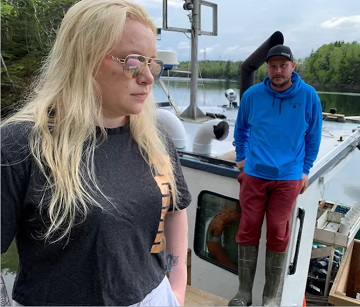
‘They look at me as an outsider’: Cape Breton fisherman says boat burned, gear vandalized
Adam Morrison said he bought the licence for more than $800,000 and had fished lobster previously in a nearby community, Big Bras d’Or, for an employer. This was a chance to have his own boat, literally in his backyard. “I put my house on the line for this lobster licence,” Morrison told the Cape Breton Post. “They don’t want to let you make a go of it … They refuse to believe I went out on my own and got this.” In early May, Morrison, an early riser due to his profession, managed to stave off disaster when he noticed a fire onboard his boat, docked at the wharf on the rear of the property. Photos, >click to read and comment< 11:06
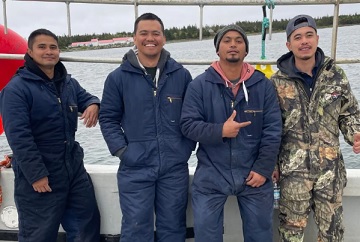
Ocean lifeline saved N.S. lobster pound cut off for 13 days by wildfires
The situation was bleak. The wildfire was moving closer and there were $5 million worth of live lobsters in tanks with no power, no refrigeration, no water circulation and no way to get fuel for the generators. “And the roads are closed. The roads were on fire. So it’s not like we could say, ‘wow, just let us bring a truck in.’ So we had to find a Plan B,” recalled Greg Sutcliffe, plant manager at the Fisherman’s Market lobster pound at Ingomar on the tip of southern Nova Scotia. It was one of two Fisherman’s Market operations on the coast inside the Shelburne County fire evacuation zone. At Ingomar, Plan B was to get there by boat. >click to read< 10:00

Nova Scotia judge rejects $170K compensation claim over seized lobster
The owner of a lobster pound has failed in his bid to be compensated for lobster that were seized by fisheries officers and dumped back into the ocean. A Nova Scotia Supreme Court judge has ruled the lobster were not caught or sold by someone who possessed a commercial licence to sell the catch. Rockville Carriers Ltd. operates a pound in Town Point, Yarmouth County. The company sued the federal government for compensation. On Nov. 15, 2019, fisheries officers raided the Rockville compound and seized more than 5,200 kilograms of lobster that had been delivered that morning. The lobster came from Kylie and Boys Fisheries Ltd., which is owned by David Pictou. >click to read< 15:27
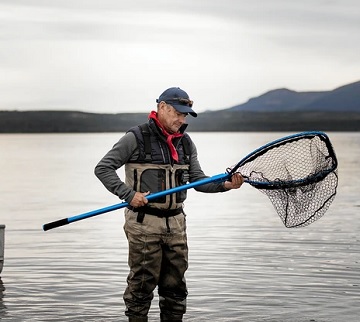
The man who changed Canada’s lobster industry and his $1B deal to sell Clearwater
In Nova Scotia, John Risley is arguably a household name, synonymous with the seafood industry and his many conspicuous possessions. On both fronts, his reputation is well earned. In 1976, he and his brother-in-law Colin MacDonald started Clearwater, a dumpy retail lobster shop on the side of a suburban Halifax highway. From that simple start, Risley fundamentally changed the Atlantic Canadian lobster industry — transforming it from a seasonal, afterthought business to a year-round, $3-billion sector where lobsters are shipped overnight by air to customers in Europe and Asia, a premise unheard of before Risley entered the industry. Along the way, Clearwater matured into a global seafood company. >click to read< 07:43
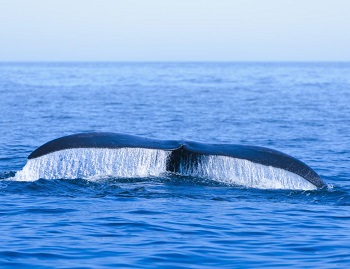
Fishing area closed after North Atlantic right whale sighting set to reopen this week
A lucrative lobster fishing area in the Maritimes is set to reopen this week after a sighting of North Atlantic right whales shuttered the fishery just weeks into the spring season. The endangered whales were spotted earlier this month in the Gulf of St. Lawrence, northeast of Prince Edward Island’s Malpeque and Cascumpec Bays. The sighting triggered a 15-day closure of popular lobster fishing grounds — part of Lobster Fishing Area 24. The federal Fisheries Department says the fishing area is set to reopen Friday. But it says two surveillance flights are required before the area reopens to fish harvesters to determine whether whales are still present. >click to read< 13:32
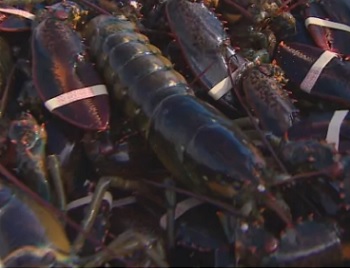
Stock assessments show Maritime lobster population strong, fishery sustainable
Adam Cook is a DFO biologist who tracks lobster populations along the Scotian Shelf and Bay of Fundy, waters that support nearly 3,000 commercial licence holders in 12 lobster fishing areas (LFAs). Cook and his colleagues recently posted stock assessments for 2022. He said all LFAs in the Maritimes are in a healthy zone for stock status. “Which suggests there’s still enough lobster to not raise any sort of conservation concerns. The commercial biomass is doing quite well,” Cook said. It’s the same story in the southern Gulf of St. Lawrence, although DFO’s stock assessments for five fishings area in that region have not been posted. >click to read< 10:17
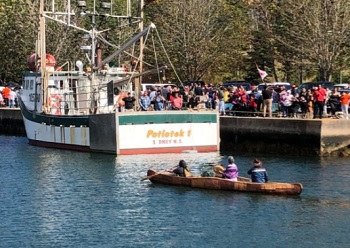
Bigger Mi’kmaw lobster fishery possible because DFO redistributed unused licences
Mike Leonard, director of Indigenous fisheries management for DFO’s Maritimes region, said the federal department has bought back lobster licences over the years as commercial fishers voluntarily relinquished them, creating a bank of licences that Indigenous communities can access. That process has allowed Eskasoni to join two other First Nations in the moderate livelihood fishery during this spring’s season without affecting the health of the lobster stocks, he said. “In the first year, in 2021, we worked with Potlotek First Nation and then last year We’koqma’q First Nation joined as well and this year it’s become an Unama’ki approach, so across the Unama’ki traditional territory, which aligns with Cape Breton,” Leonard said. >click to read< 08:55

3 Mi’kmaw First Nations excited about moderate livelihood fisheries
Three Mi’kmaw communities are celebrating their dramatically increased roles in the lobster fishery around Cape Breton Island this spring. The Department of Fisheries and Oceans announced Tuesday it has renewed moderate livelihood understandings with Potlotek and We’koqma’q, and now Eskasoni has joined them. Eskasoni Chief Leroy Denny said he is excited because up to 70 fishers will now be out on the water hauling in traps and earning a living. “It’s a really good thing, a really very big deal for us,” he said. Under interim understandings, the bands will fish during the commercial season, which is open now around Cape Breton and closes in mid-July. >click to read< 10:31
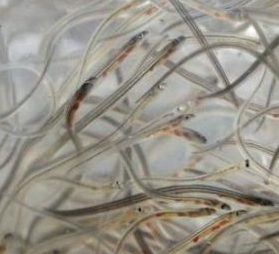
For Atlantic Canada, Fishing Season Brings Yet More Violence
In the early morning dark of April 12, 2023, violence erupted along a Nova Scotia riverbank after a man engaged a woman and a youth in a heated argument. Soon after, seven people arrived. One allegedly assaulted the man with a pipe while another stood nearby wielding a knife and a taser. When the RCMP later arrested two members of the group a short distance away, the officers found two shotguns and a taser. Conflict around elvers is not new, nor is it the only fishery in Atlantic Canada that’s seen so much turmoil. Whether it’s around elvers, lobsters, or something else, “this will continue to play out, and play out, and play out, until the government deals with the issues on the table.” >click to read< 08:05
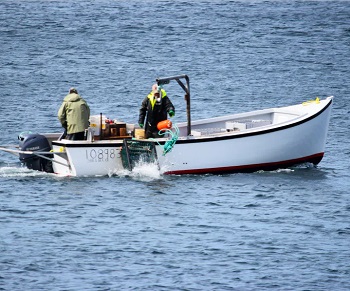
‘Looks like the worst spring in 25 years’: lobster prices, catches down as seasons wraps up in southwestern N.S.
Landings have been low all spring in Lobster Fishing Areas (LFAs) 33 and 34, which runs from Eastern Passage, Halifax County, to Burns Point Digby County, and includes all of Yarmouth and Shelburne counties. “Some people are down as much as 40 per cent. Some not as much. From the numbers I crunched it looks like on average we’re down 25 per cent over previous years, which sort of looks like the worst spring in 25 years,” says Dan Fleck, executive director of the Brazil Rock 33/34 Lobster Association. Cotter noted fishers in other recently opened LFAs in the Atlantic provinces are also experiencing low catches, bad weather and cold water temperatures. The shore price, which peaked at $13 a pound in the winter and early spring, plummeted to $8 in early May for LFA 33 and 34 fishers. >click to read< 14:48
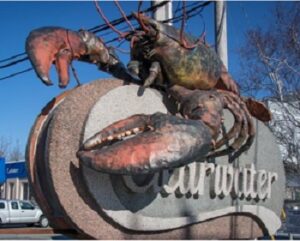
Clearwater Seafoods wants 72 tonnes of lobster added to its annual harvesting quota
The Indigenous-owned company has exclusive rights to Lobster Fishing Area 41, or LFA 41, off southern Nova Scotia, where Clearwater maintains a long-held quota of 720 tonnes. Last fall, the Membertou First Nation and Mi’kmaw partners in the company asked the Department of Fisheries and Oceans to increase the total allowable catch by ten per cent. In response, DFO has issued an “interim” total allowable catch of 720 tonnes for 2023 while it considers this request. The Brazil Rock Lobster Association, the Coldwater Lobster Association and the LFA 33 Advisory Committee have submitted letters to DFO in opposition. >click to read< 08:44
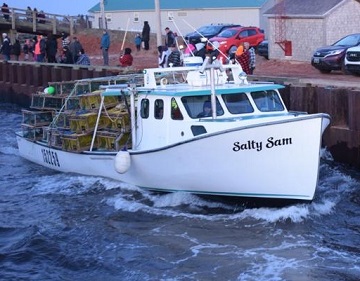
No excuse for low lobster prices
The prices being paid to PEI lobster fishers a week into the 2023 season are underwhelming, with most getting $6.50 a pound for canners and $7 for markets. Last year fishermen were paid anywhere from $7 to $9 a pound, while in 2021 prices soared as high as $11. At Graham’s Pond, Travis Graham’s crew has been getting $6.50 for canners and $7.25 for markets. He said he doesn’t think much of those rates, but he’s optimistic things will get better. Edwin McKie, who fishes out of Fortune Harbour, said his crew has also been getting $6.50 to $7 on their tickets. But he expects things to get better. A friend in Maine told him prices there dropped from $10 to $7, and there isn’t a lot of lobster coming to shore there either. >click to read< 11:21
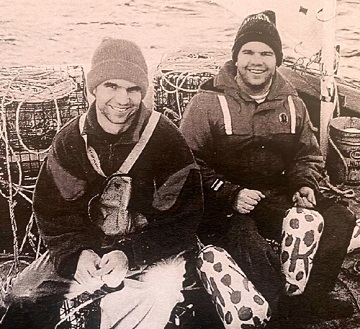
Licence technicality forces son of a Nova Scotia moonlighter lobster fisherman to move away
Mike Kaiser has fished lobster with his father, Dwayne, since he was little. Like many, he wants to carry on the legacy. On Tuesday, Mike Kaiser will move to Alberta to pick up work. He says he’d rather stay in Nova Scotia around his family, doing what his father did for nearly 50 years. But a policy that’s been around almost as long means Dwayne cannot pass on his licence to his son. He holds one of about 70 “moonlighter” licences granted years ago to part-time fishermen in Nova Scotia and New Brunswick. Those licences die with them. >click to read< 11:09
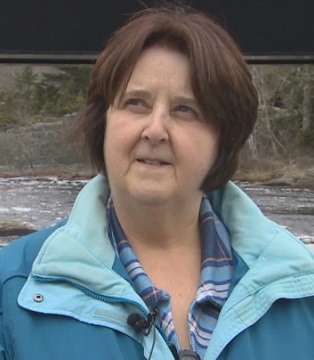
Striking fishery officers stand aside as poaching continues for lucrative baby eels
“Our net should be here, not some illegal fisherman,” says Brenda Golden, a co-owner of Wine Harbour Fisheries. Golden is looking under the Liscomb River bridge where a fine mesh net supported by floats stretches into the black foamy water. Hoping to have the net removed, Golden’s daughter reported it to the local Department of Fisheries and Oceans on Tuesday. Fisheries officials did not provide a response when asked about this incident. Nor to questions about the impact of the ongoing Public Service Alliance of Canada strike on its ability to rein in widespread illegal harvesting. >click to read< 07:15

“The market has collapsed.” With crab season on the line, seafood producers’ association digs in its heels on price
Jeff Loder, executive director of the Association of Seafood Producers said Monday the crab market has softened in the past few weeks, and the group will not negotiate a new price with fishermen. “The market has collapsed. Prices need to reflect that,” he said. Loder said each day the industry is delayed, with fishermen in the Maritimes and Quebec already out on the water, the worse it is for everyone. “Snow crab is not selling. There’s a glut in inventory,” said Loder, speaking for the first time since the provincial price-setting panel set a minimum price of $2.20 Cdn per pound for harvesters, who responded with protests and say they can’t afford to fish for that price. “We need raw material to get those plants going, and to have any chance to compete with our competitors in Atlantic Canada, who are all fishing in Quebec, New Brunswick, Nova Scotia and P.E.I. at $2.25 a pound,” Video, >click to read< 16:00
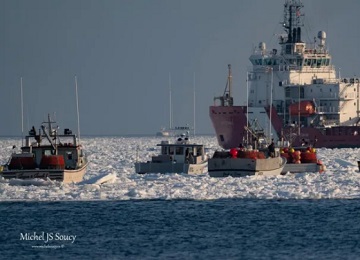
Cape Breton fishermen say ice was a problem because DFO didn’t follow its own policy
Some Cape Breton fishermen say if the Department of Fisheries and Oceans hadn’t opened the Gulf of St. Lawrence snow crab season too early, icebreakers would not have been needed to get boats in and out of Cheticamp harbour. Andrew Bourgeois, president of the Gulf of Nova Scotia Fishermen’s Coalition and a director of the Gulf fleet planning board, said DFO officials usually agree to wait until all the coasts are ice-free, but not this year. “I think if DFO would have followed their protocol, I don’t think there would have been an issue with the ice,” he said. “The protocol says that if there was ice at 20 fathoms or deeper that it shouldn’t open, it wouldn’t open. And they opened it anyways.” >click to read< 13:11
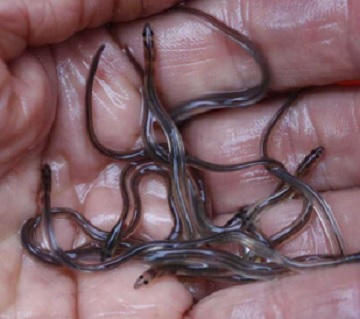
Maritime baby eel fishers pan federal decision to close fishery over safety concerns
Ottawa’s decision to shut down the lucrative but contentious baby eel fishery in the Maritimes has effectively ended the 2023 season, says a commercial licence holder in southwestern Nova Scotia. Brian Giroux, of Shelburne Elver, a fishing co-op that employs 39 people, said the mandatory 45-day closure announced by the Department of Fisheries and Oceans on Saturday will largely run out a season that normally wraps up in early June. “Illegal activities that (DFO) failed to control have taken away the fishing from the licensed and legal fishing,” Giroux said in an interview Monday. >click to read< 10:32
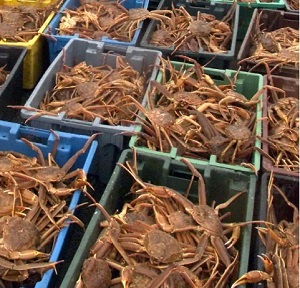
Low prices could force out some snow crab harvesters
The snow crab industry in Cape Breton is in a world of trouble this year and a price of $2.25 per pound at the wharf may not be enough for some harvesters to continue. “You have the U.S. market with bank failures and they are close to a recession,” said Osborne Burke, general manager of Victoria Cooperative Fishery Ltd., located in Neils Harbour. Osborne says it’s been 15 years since the at-wharf price was that low. Factor in the economy issues and very high fuel prices and the number crunching simply isn’t working in harvesters favour. >click to read< 16:09
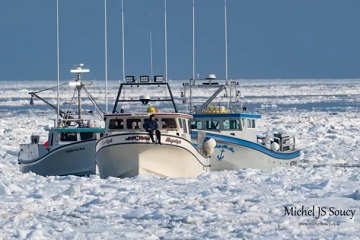
‘It’s a rough ride’: Ice woes persist for snow crab boats in Chéticamp
Angus Lefort got a text message Sunday morning from a snow crab fisherman who was trying to leave Chéticamp Harbour. What would normally take 15 minutes took about two hours because the Nova Scotia harbour is packed with ice. “It’s a rough ride,” said Lefort, the manager of Chéticamp’s harbour authority. The snow crab fishery opened Tuesday. On Wednesday, a Canadian Coast Guard icebreaker arrived to help get the fishing boats in and out of the harbour. Video, photos, >click to read< 13:21

DFO halts baby eel fishery in N.S., N.B for 45 days over escalating conflict
A news release from DFO on Saturday said after extensive monitoring it was determined that unreported removals made up a significant percentage of elver, or baby eel, landings. Fishery officers conducted extensive patrols from March 13 to April 10 to ensure compliance with regulations for the harvesting and sale of elvers, according to the release. The release states an increase in conflicts resulting in violence and threats risks the safety of harvesting and creates a threat to the management and control of the fishery. >click to read< 14:36






